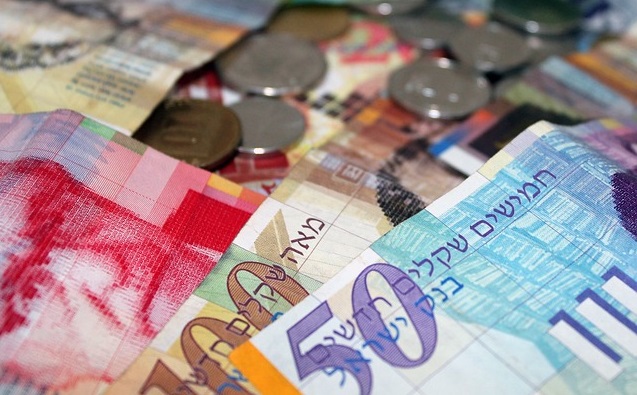As the Shekel continues to slide against major foreign currencies, financial experts are saying that it is only a matter of time now before the Bank of Israel steps in to do something proactive to try and prop up Israel’s currency. Bank of America has even issued a report saying that it expects just that.
Citigroup predicted that the Shekel would drop to a low of 3.95 to the Dollar.
Will you offer us a hand? Every gift, regardless of size, fuels our future.
Your critical contribution enables us to maintain our independence from shareholders or wealthy owners, allowing us to keep up reporting without bias. It means we can continue to make Jewish Business News available to everyone.
You can support us for as little as $1 via PayPal at office@jewishbusinessnews.com.
Thank you.
The New Israel Shekel (NIS) dropped sharply this week, falling to a three year low against the Dollar. The drop in the Shekel’s value came in spite of the fact that on Monday the Bank of Israel raised the interest rate by 0.5 percentage points to 4.25 percent, a move that should have caused an increase in the value of the Shekel. Interest rate hikes tend to raise the value of a nation’s currency.
But that did not seem to counter concerns about the future of Israel’s economy as the country moves forward with a controversial judicial reform plan. Israel’s political opposition says the plan would harm the nation’s democratic identity since it would end the ability of its Supreme Court to review the laws passed by the Knesset or actions made by the government.
Many say this would make international investors lose faith in Israel’s stability. Even some Israeli firms are taking their money out of the country. A drop in foreign investment coupled with people taking their money out of the country causes a nation’s currency to fall in value.
So, what can a central bank do to help?
Well, it simply buys up its country’s own currency with some of its foreign currency reserves. This helped to increase the local currency’s value. But the problem is Israel’s bank needs to hold onto those reserves to cover debts and trade deficits, so it cannot sell off too much of its reserves.
Interestingly, it was not that long ago that the Bank took the same measures, but going in the opposite direction. A few years ago the Shekel got to be too strong. This meant that foreign investors would not get as much for their money when buying into Israeli startups. A high Shekel is good for Israeli consumers as it makes imports cheaper, as well as traveling abroad. But it hurts tourism – still an important component of Israel’s economy – since a tourists Dollars or Euros do not buy them as much in the country.
Bank of America expects the BOI to start intervening soon.
“Political noise in Israel doesn’t usually impact Israeli assets or economic policy but we believe this time is different. Local sentiment has the potential to cause domestic investors to shift their portfolios away from shekel-based assets,” said the bank in a report.
“The shekel has recently broken its long-standing correlation with the US equity market. If this sentiment continues we expect further shekel depreciation,” added the Bank of America. “The Bank of Israel could intervene in the currency rather than increase its policy rate further, as it is close to ending its hiking cycle, and hikes usually have little effect on the currency when the underlying factor behind depreciation is confidence.”




